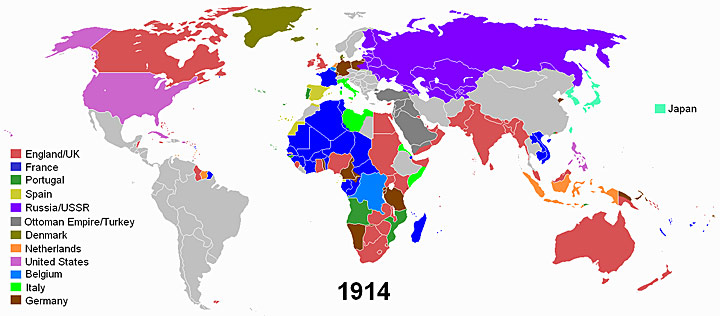
Unit 4: Nationalism, Industrialism, and Imperialism
Lesson A: Birth of the Imperial World
Opening: The World of New Imperialism
During the 16th and 17th centuries, Europeans established colonies in the Americas. This early colonization focused on permanent settlement of Europeans in colonies for political, social, and economic reasons. However, the new imperialism of the 18th and 19th centuries was slightly different. Imperialism was empire building carried out by industrialized countries, on a massive scale, using the tools of transportation and technology at their disposal. The manner in which they controlled colonies varied, but the natives of these countries were often denied basic political and economic rights. A few countries developed as settler colonies, but these were rare.
Written Activity - Notebook
Examine the map below and then respond to the following questions in your notebook:
- Which countries appear to have secured the most amount of land by 1914?
- In which parts of the world were most colonies or possessions located?
- What problems or issues might arise if countries are competing for control of other countries?
- In addition to economic reasons, why might countries want to control other countries?

Map Showing Territories Colonized by European Powers in 1914 [1]
Page Notes:
[1] Source: This animated gif from http://commons.wikimedia.org/wiki/File:Colonisation2.gif has been released into the public domain. Attribution: Andrei Nacu.

